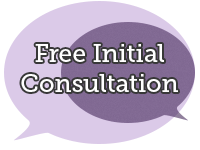Frequently Asked Questions
Q: What’s the difference between talking to a friend and talking to a counsellor?
A: Sometimes talking to a friend or a family member can be helpful but there are some disadvantages to having them as your only means of support. They could potentially feel a conflict of loyalty and find it hard to keep things confidential. They may become upset themselves by what you are telling them and could become upset if you don’t accept their advice. They could also begin to feel overburdened, especially if they have their own problems too.
Counsellors are trained to listen and offer a safe and non-judgmental space for their clients. Rather than offering advice, counsellors will support their clients to work through their issues.
Q. What sort of issues can you help with?
A. I have experience of working with many issues ranging from eating disorders to bereavement, anxiety and depression to anger management. I believe that the relationship with the client is the most important element of successful therapy and I will adapt the style of my work to suit each individual; this is known as working in an integrative way.
Q. Do you only see individuals?
A. I have had success with small groups, also with families and couples. Everyone is welcome in my practice and I pride myself on working inclusively.
Q. How long will it take before I start to feel better?
A. Everyone comes to therapy for a reason and the work we do together can last for weeks or in some cases for years. I hope that having time and space to talk to someone will be a positive step from day one but everyone is different. There is no commitment or time specific contract involved and the first session is free of charge in order for you to get a 'feel' for the way things might work for you.

